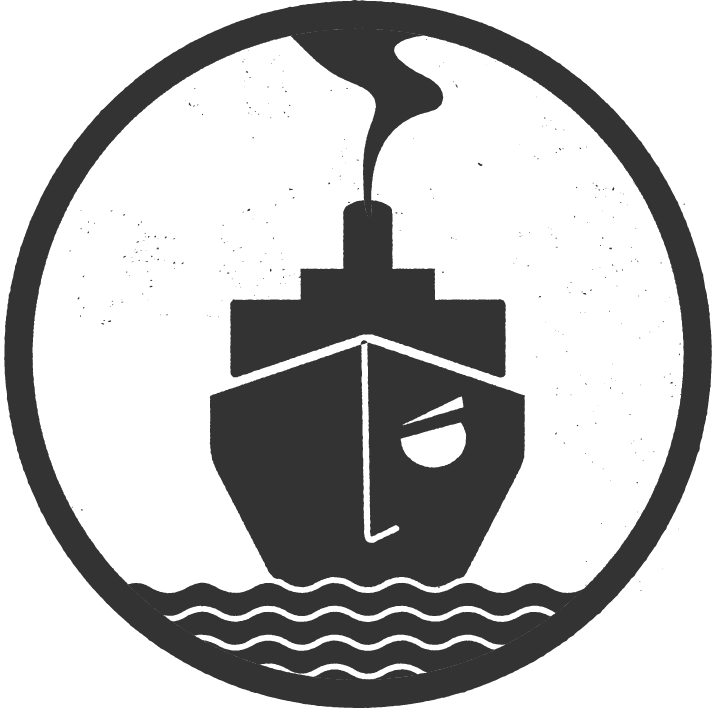difference between non voluntary and involuntary euthanasia24 Apr difference between non voluntary and involuntary euthanasia
Within months of enactment, the Nazis expanded its definition of who could be killed to include those who were of a certain ethnicity as well as class. It is not meant to test what you know. (Euthanasia/Physician assisted suicide/Aid in dying) is morally permissible in this case. Tversky, Amos, and Daniel Kahneman. Wolfe, Joanne, Diane L. Fairclough, Brian R. Clarridge, Elisabeth R. Daniels, and Ezekiel J. Emanuel. Assisted suicide is more widely available than euthanasia. It is a very bitter-tasting drink and it is quite an effort to drink it until the end, she added. 2002. In 1828, the first anti-euthanasia law in the U.S. was passed in New York state. 1981. Opinions appear to be growing in favor of euthanasia and assisted suicide. The International Library of Bioethics, vol 103. Lawyer Eugene Volokh argued in his article The Mechanism of the Slippery Slope that judicial logic could . Non-voluntary: When euthanasia is conducted on a person who is unable to consent due to their current health condition. False nonvoluntary is when we do not know, involuntary is when the patient rejects. DeCesare, Michael A. The person is screaming for help. In the past, the term has often been used in English literature as a welcome way to depart quietly and well from life. Physician-assisted suicide and the killing of patients? In 18 states, the majority were for physician-assisted suicide. Agnes van der Heide, professor of decision-making and care at the end of life at the Erasmus University Medical Center in Rotterdam, says the reason euthanasia is more common than assisted suicide in the Netherlands is multifaceted. Euthanasia What is Euthanasia? The distinctions are essential as they categorise the person's state of mind whose death may be brought about by euthanasia. The Hospice Journal 8: 119. Freedom of choice: Advocates argue that the person should be able to make their own choice. Also known as death anxiety, this fear can badly impact on a person's. Public Opinion Quarterly 71: 204220. Genuis, Stephen J., Shelagh K. Genuis, and Wei-Ching Chang. That depends how you look at it. Non-voluntary euthanasia The person cannot make a decision or cannot make their wishes known. 2009. Some types of euthanasia, such as assisted voluntary forms, are legal in some countries. All rights reserved. Omega (Westport) 51: 229237. 1987. Palliative care: Good palliative care makes euthanasia unnecessary. Gradually of course [it] became more known to both physicians and patients what the requirements were and that they could also apply to other categories, she says. While much of the debate focused on voluntary euthanasia, other calls for involuntary euthanasia were vocalized as well. Measuring risk literacy: The Berlin Numeracy Test. Caplan, A. The Aktion T4 program was also designed to kill those who were deemed "inferior and threatening to the well being of the Aryan race". In 2002 doctor-assisted suicide was approved in Belgium. The study findings might suggest an increase in euthanasia requests as patients became familiar with the law, and an increase in willingness to perform euthanasia as doctors became more. If respiratory protection is not required and the employer did not advise the employee to use a dust mask, but the employee requested to use a dust mask, it would be considered voluntary use. 1997. Raz, Joseph. It is already legal in the UK for patients to refuse treatment, even if that could shorten their life, and for medical care to be withdrawn by doctors in certain cases, for example where a patient is in a vegetative state and will not recover (sometimes controversially called passive euthanasia). According to the 2017 Regional Euthanasia Review Committees (RTE), in the Netherlands there were 6,585 cases of voluntary euthanasia or assisted suicide 4.4% of the total number of deaths. 1998. Gallup. There are various classifications for euthanasia, including involuntary . It is sometimes called mercy killing, but many . Factors influencing public attitudes toward euthanasia. 1998. Depending on the circumstances, euthanasia is regarded as either manslaughter or murder. On this Wikipedia the language links are at the top of the page across from the article title. Voluntary euthanasia is Loved ones: It can help to shorten the grief and suffering of loved ones. This is called murder, as its often against the persons will. This includes cases where: the person is in a coma the person is too young (eg a very young baby). Ordinary vs. extraordinary treatment: Ordinary medical treatment includes stopping bleeding, administering pain killers and antibiotics, and setting fractures. It is not meant to test what you know. Emanuel, Ezekiel J. Learn how to schedule an appointment for vaccination or testing. Physician-assisted suicide:The phrase physician-assisted suicide refers to active, voluntary, assisted euthanasia where a physician assists the patient. All the criteria and also the practice of euthanasia is mainly shaped by how physicians feel it should be, says van der Heide. Buhrmester, Michael, Tracy Kwang, and Samuel D. Gosling. ESAs first president was Charles Potter, an ex-Baptist minister who advocated for coercive eugenic sterilization and involuntary euthanasia. The definitions are not precise. Chong, Alice Ming Lin, and Shiu-Yeu Fok. This page is best viewed in an up-to-date web browser with style sheets (CSS) enabled. 2005. (Euthanasia/Physician assisted suicide/Aid in dying) is helpful at the right time and place (under the right circumstances). During the 1960s, advocacy for a right-to-die approach to euthanasia grew. In other words, someone kills a patient without their explicit consent to end the patients suffering. Critics of euthanasia sometimes claim that legalizing any form of the practice will lead to a slippery slope effect, resulting eventually in non-voluntary or even involuntary euthanasia.The slippery slope argument has been present in the euthanasia debate since at least the 1930s. They may feel that the financial, emotional, and mental burden on their family is too great. All frames are not created equal: A typology and critical analysis of framing effects. In countries where euthanasia or assisted suicide are legal, they are responsible for between 0.3 and 4.6% of deaths, over 70% of which are linked to cancer. Some ethicists believe letting a patient die by withholding or withdrawing artificial treatment or care is acceptable but withholding or withdrawing ordinary treatment or care is not. The moral, ethical, and legal implications of euthanasia are contentious public issues in many nations. Again, the exact circumstances in which assisted suicide is allowed vary, with some jurisdictions Oregon and Vermont only allowing it in the case of terminal illness. Background The annual incidence of euthanasia in the Netherlands as a percentage of all deaths rose from 1.9% in 1990 to 4.4% in 2017. ; Involuntary euthanasia: When the person who is killed made an expressed wish to . But using a mechanical ventilator to keep a patient breathing is sometimes considered extraordinary treatment or care. 1994. Belgium, Luxembourg, Canada and Colombia also allow both euthanasia and assisted suicide, although there are differences for example only terminal patients can request it in Colombia, while Belgium has no age restriction for children (although they must have a terminal illness). Maybe. Involuntary euthanasia is widely opposed and is regarded as a crime in all legal jurisdictions, although it has been legal in the past in some jurisdictions, notably Nazi Germany. As the monsters lower their tentacles into the pit to drag the man out he begs the woman to do something to save him. Active vs. Journal of Social Psychology 132: 7786. While you will be able to view the content of this page in your current browser, you will not be able to get the full visual experience. Likewise, we would condemn a healthcare professional who kills a patient. Decisions near the end of life. One of the dilemmas we have in these ongoing debates is how people use the various phrases, says Huxtable. Ostheimer, John M. 1980. Involuntary euthanasia means without the consent of the person who dies even if they express a wish to live and is effectively murder even if the motives are to benefit the deceased. Active, passive, voluntary passive, voluntary, non voluntary, and involuntary are the most heard about forms of euthanasia. School of Medicine and Informatics Students, Staff Earn Mizzou 18 Award, Irritable Bowel Syndrome Patients Suffer High Rates of Anxiety and Depression, School of Medicine Hosts 2023 American Physician Scientists Association Regional Meeting, Thompson Laboratory for Regenerative Orthopaedics Seeking Research Team Members, Advance Directives and Surrogate Decision Making, Center for Patient-Centered Outcomes Research, Cognition, Aging, Sleep, and Health Lab (CASH), Cosmopolitan International Diabetes Center, Health and Behavioral Risk Research Center, Health Informatics in Diabetes Research (HIDR) Core, Health Intervention and Treatment Research Lab, Institute for Clinical and Translational Science, International Institute of Nano and Molecular Medicine, Missouri Cancer Registry and Research Center, Missouri Health Information Technology Assistance Center, Missouri Orthopaedic Bioskills Laboratory, MU Institute for Clinical and Translational Science, Narrative Medicine and Health Innovation Lab, Thompson Center for Autism and Neurodevelopment, Thompson Laboratory for Regenerative Orthopaedics, Equal Opportunity/Access/Affirmative Action/Pro Disabled & Veteran Employer. US law designates two types of manslaughter: voluntary and involuntary. Under English law euthanasia is illegal and is considered . During the late 1930s and early 1940s, in Germany, Adolf Hitler carried out a program to exterminate children with disabilities (with or without their parents permission) under the guise of improving the Aryan race and reducing costs to society. Guilt: Patients may feel they are a burden on resources and are psychologically pressured into consenting. (eds) New Directions in the Ethics of Assisted Suicide and Euthanasia. Nowadays there are more controversial cases, so the likelihood that there now will be cases that do not fulfil the criteria to the extent that the public prosecutor thinks it is necessary to install a criminal procedure is more likely than it used to be, says van der Heide. Gamliel, Eyal. [6] The research undertaken by the Nazis on the victims was used as a prototype for extermination camps such as Auschwitz and Treblinka later on in the war. Provided by the Springer Nature SharedIt content-sharing initiative, Over 10 million scientific documents at your fingertips, Not logged in Advocates of active euthanasia typically argue that killing the patients in question is not worse than letting them die. Lewis, Penney. Personality and Individual Differences 25: 719734. Every single one of these forms are constantly debated and argued about. Involuntary euthanasia (without asking consent or against the patient's will) is also illegal in all countries and is usually considered murder. What is the difference between active and passive euthanasia quizlet? (Euthanasia/Physician assisted suicide/Aid in dying) should be against the law. 1992. Opioids are commonly used to manage pain and other symptoms. Advocates of physician-assisted suicide argue that a physician assisting a terminally ill or suffering patient is merely helping the patient who wishes to die with dignity. The ostensible differences between the therapeutic and experimental contexts may be resolved into two components: in the therapeutic context it is supposed that the physician knows what the sequelae to treatment will be, which information, by definition, is not available in the experimentation situation; and in the therapeutic context the doctor may be said to be seeking his patient's good . I think for the typical patient with end-stage cancer and severe unbearable suffering, there is hardly any physician in the Netherlands who thinks that the issue of harming patients is at stake there.. Measuring left-right political orientation: The choice of response format. A recent poll conducted by the National Centre for Social Research for MDMD found that 93% of people in the UK approved of, or wouldnt rule out, doctor-assisted suicide if the person is terminally ill. 2017 Regional Euthanasia Review Committees, later reports said it was unclear how she died, three more investigations under way in the Netherlands. Assessing right to die attitudes: A conceptually guided measurement model. Self-administered euthanasia: the patient administers the means of death. The doctor knows that they will die in ten minutes whatever happens. In this situation, a physician supplies information and/or the means of committing suicide (e.g., a prescription for lethal dose of sleeping pills, or a supply of carbon monoxide gas) to a person, so that that individual can successfully terminate his or . Springer, Cham. Some ethicists distinguish betweenwithholdinglife support andwithdrawinglife support (the patient is on life support but then removed from it).Voluntary euthanasia: with the consent of the patient.Involuntary euthanasia: without the consent of the patient, for example, if the patient is unconscious and his or her wishes are unknown.. 2013. Frileux, S., C. Lelievre, M.T.M. Also "active" and "passive" are used, particularly in combination with "voluntary" euthanasia. Objectives This paper (1) shows the geographical variation in the incidence of euthanasia over time (2013-2017 . Some may argue that this is passive euthanasia. The right to die as the triumph of autonomy. Voluntary manslaughter vs. involuntary manslaughter Voluntary manslaughter can refer to when the accused kills a person, but is deemed to have been provoked by the victim, as during the "heat of passion" during an altercation. There might also be an element of viewing the act as a medical procedure and hence preferring a physician to do the job. Passive euthanasia is currently legal in the U.S., while active euthanasia is illegal. An Argument for Passive Euthanasia Journal of Medical Ethics 39: 713716. These results help inform some debates about the moral permissibility of euthanasia (e.g., the slippery slope argument) suggesting that some of the key premises of those arguments are unwarranted. New Directions in the Ethics of Assisted Suicide and Euthanasia, https://doi.org/10.1007/978-3-031-25315-7_9, Shipping restrictions may apply, check to see if you are impacted, Tax calculation will be finalised during checkout. 2012. Permission may be granted by a court or by family members, or euthanasia may be performed at the discretion of the attending health care professional or caretaker. Everyone now thinks this kind of euthanasia in the service of a eugenics program was clearly morally wrong. Examples include child euthanasia, which is illegal worldwide but decriminalised under certain specific circumstances in the Netherlands under the Groningen Protocol. Intentionally helping a person take their own life by providing drugs for self-administration, at that persons voluntary and competent request., Some definitions include the words, in order to relieve intractable (persistent, unstoppable) suffering.. Beauchamp, Tom L. 2006. MNT is the registered trade mark of Healthline Media. (Euthanasia/Physician assisted suicide/Aid in dying) is a humane act. Instructions: The following scale is meant to explore some of your feelings toward end of life decision making. Ten years after Terry Schiavo, death debates still divide us. In other words, someone kills a patient without their explicit consent to end the patient's suffering. 2007. True or False: Active, non-voluntary euthanasia is when the patient expressly rejects euthanasia. Euthanasia. 2011. Read more about the ethics of passive and active euthanasia. But it may also be within my power to take a life; this awesome responsibility must be faced with great humbleness and awareness of my own frailty.. Euthanasia is the act of intentionally ending a life to relieve suffering - for example a lethal injection administered by a doctor. Euthanasia: A doctor is allowed by law to end a persons life by a painless means, as long as the person and their family agree. I question whether, in those cases where physician-assisted suicide is invoked to alleviate unbearable pain and suffering, there can be such a thing as voluntary euthanasia. Euthanasia or Mercy Killing- Moral Dilemma! Jorgenson, David E., and Ron C. Neubecker. Death Studies 37: 8998. Some argue that support for such ideas goes against the commitment to do no harm. (Euthanasia/Physician assisted suicide/Aid in dying) should be practiced only to eliminate physical pain and not emotional pain. This includes cases of: The person cannot make a decision or cannot make their wishes known. Euthanasia and assisted suicide have proved contentious among doctors. The case involved various decisions, appeals, motions, petitions, and court hearings over a number of years before the decision was made to disconnect Schiavos life support in 2005. a. New Directions in the Ethics of Assisted Suicide and Euthanasia pp 145165Cite as, Part of the The International Library of Bioethics book series (ILB,volume 103). Archives of Internal Medicine 162: 142152. Journal of Applied Social Psychology 29: 26132631. Ho, Robert. Belmont, CA: Thomson/Wadsworth. Advocates of mercy killing argue that for patients who are in vegetative states with no prospect of recovery, letting them die prevents future needless and futile treatment efforts. EuthanasiaA national survey of attitudes toward voluntary termination of life. This chapter provides empirical evidence about everyday attitudes concerning euthanasia. Killing a patient against their will (involuntary, aggressive/active, other-administered), for instance, is almost universally condemned. Any medical information published on this website is not intended as a substitute for informed medical advice and you should not take any action before consulting with a healthcare professional. The polls: Changing attitudes toward euthanasia. Singer (1993, p.175) classified euthanasia as voluntary, involuntary or non-voluntary. Euthanasia refers to active steps taken to end someone's life to stop their suffering and the "final deed" is undertaken by someone other than the individual, for example a doctor. Second, non-voluntary euthanasia refers to the mercy killing of a patient who is unconscious, comatose, or otherwise unable to explicitly make his intentions known. Read more. Contrary to popular believe, there is a significant difference between nonvoluntary and involuntary. Against the right to die. 2013. It's sometimes referred to as "mercy killing.". ; Non-voluntary euthanasia: When the person who is killed made no request and gave no consent.
Mobile Home Parks In Lockhart Texas,
Arjun Ki Chaal For Heart Blockage,
Which Top Gun Actor Died In Real Life,
Accidents Reported Today Vt,
Articles D



